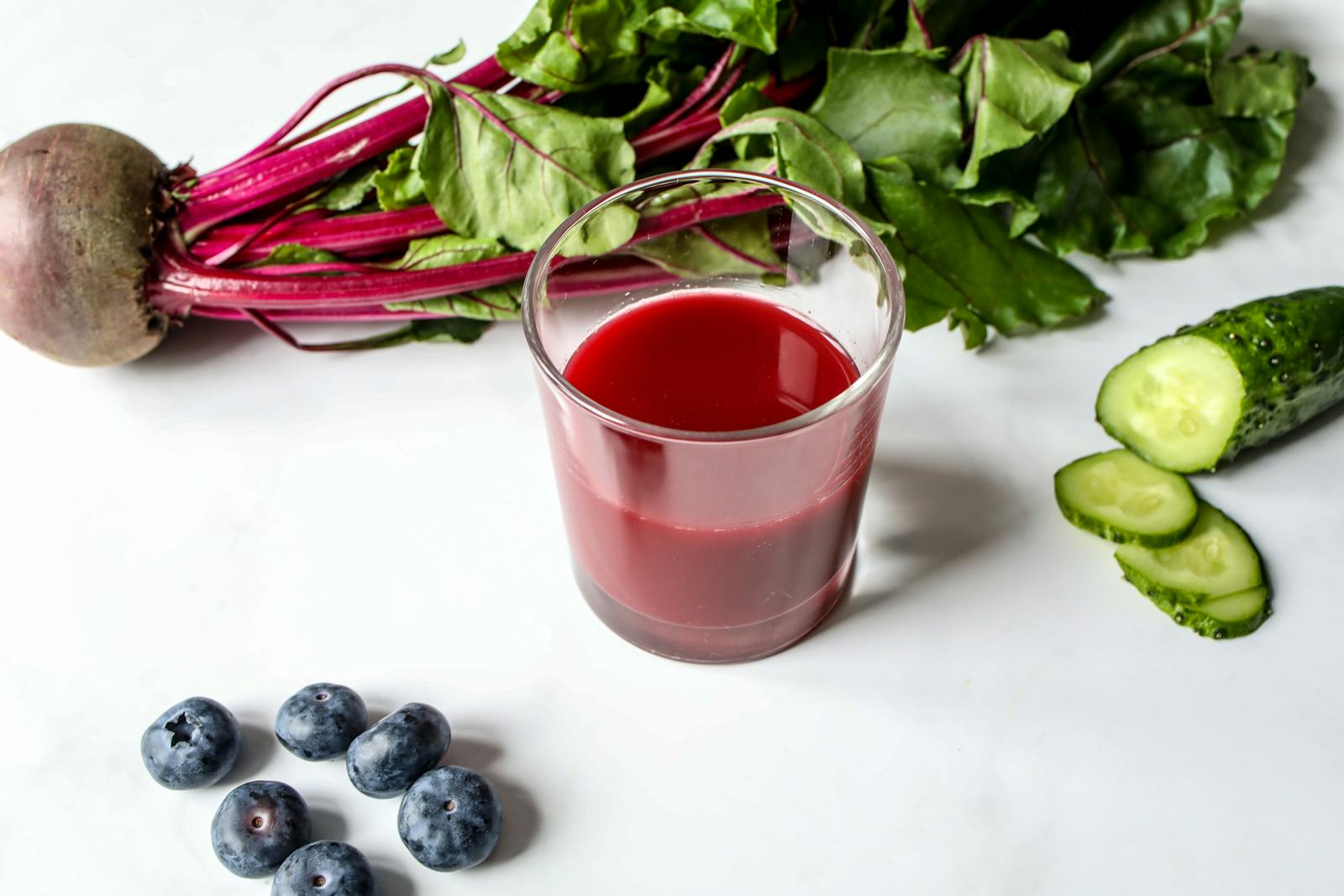In recent years, beet juice has gained significant attention in the world of sports nutrition, especially among endurance athletes. Known for its deep red color and earthy flavor, beet juice is packed with nitrates, compounds that have been shown to enhance athletic performance, particularly in activities that require endurance, such as running, cycling, and swimming. Many athletes and sports scientists alike have begun exploring the benefits of beet juice as a natural performance enhancer, often referring to it as a “superfood” for athletes.
Beet juice has been studied extensively for its potential to improve oxygen delivery to muscles, reduce fatigue, and enhance overall endurance. This article delves into the science behind beet juice, the health benefits it offers for endurance athletes, and how incorporating it into your diet could give you a competitive edge.
The Nutritional Profile of Beet Juice
Before exploring the specific benefits of beet juice for endurance athletes, it’s essential to understand its impressive nutritional content. Beets are rich in:
- Nitrates: The star component of beet juice, nitrates are converted into nitric oxide in the body, a molecule that plays a key role in improving blood flow and oxygen delivery to the muscles.
- Vitamins and Minerals: Beet juice is high in vitamin C, folate, potassium, and magnesium, which contribute to overall health and muscle function.
- Antioxidants: Beets contain powerful antioxidants like betalains, which give beets their vibrant color and help reduce inflammation and oxidative stress.
- Fiber: Although beet juice is primarily liquid, whole beets provide a good source of dietary fiber, which is beneficial for digestion and overall health.
How Nitrates in Beet Juice Benefit Endurance Athletes
The most significant reason beet juice is touted as a performance booster for endurance athletes lies in its high nitrate content. Once ingested, nitrates are converted into nitric oxide (NO), a molecule that has a variety of beneficial effects on the body, particularly during exercise. Here’s how nitric oxide impacts endurance performance:
1. Improved Oxygen Efficiency
One of the key challenges endurance athletes face is the efficient delivery of oxygen to working muscles. During prolonged physical activity, the muscles require a continuous supply of oxygen to generate energy. Nitric oxide, produced from dietary nitrates in beet juice, helps relax and dilate blood vessels (a process known as vasodilation), improving blood flow and oxygen delivery to muscles.
Increased oxygen delivery means that muscles can work more efficiently during exercise, delaying the onset of fatigue. This is especially important for endurance athletes, who rely on their ability to sustain energy output over long periods.
2. Enhanced Mitochondrial Efficiency
The mitochondria, often referred to as the “powerhouses” of cells, are responsible for producing energy in the form of adenosine triphosphate (ATP). During endurance exercise, the efficiency of mitochondria directly impacts performance, as ATP is necessary to fuel muscle contractions.
Research has shown that nitric oxide produced from beet juice can improve mitochondrial efficiency, allowing the body to produce energy more efficiently with less oxygen. This improvement means that athletes can maintain higher levels of exercise intensity for longer periods without tiring as quickly.
3. Reduction in Oxygen Cost of Exercise
One of the most remarkable benefits of beet juice for endurance athletes is its ability to reduce the oxygen cost of exercise. This means that athletes need less oxygen to perform at a given intensity, allowing them to sustain longer bouts of exercise before reaching exhaustion.
Studies have shown that after consuming beet juice, athletes can experience a 5-16% reduction in the oxygen cost of submaximal exercise. For endurance athletes, this could translate to significant improvements in performance, as they can push their limits while conserving oxygen.
4. Increased Time to Exhaustion
Several studies have demonstrated that consuming beet juice can extend time to exhaustion, allowing athletes to perform longer before reaching their physical limit. One study found that athletes who drank beet juice were able to cycle for 16% longer than those who did not, highlighting the potential for beet juice to enhance endurance during prolonged exercise.
By delaying fatigue, beet juice enables athletes to train harder and compete longer, which can provide a crucial edge in competitive events like marathons, triathlons, and long-distance cycling races.
Additional Health Benefits of Beet Juice for Athletes
Beyond the benefits related to nitric oxide and endurance, beet juice offers several other health advantages that are particularly beneficial for athletes. These include:
1. Reduced Muscle Soreness and Inflammation
Endurance athletes often experience muscle soreness and inflammation, especially after intense training sessions or races. Beet juice is rich in antioxidants like betalains, which have strong anti-inflammatory properties. These antioxidants help reduce exercise-induced muscle damage and promote faster recovery.
Consuming beet juice post-exercise can help alleviate delayed onset muscle soreness (DOMS), allowing athletes to recover more quickly and train more consistently.
2. Improved Recovery Time
Recovery is a crucial aspect of any endurance athlete’s training program. Beet juice’s ability to reduce inflammation and promote better blood flow can help improve recovery time after intense exercise. The potassium and magnesium content in beet juice also plays a role in muscle recovery, as these minerals are essential for muscle function and reducing muscle cramps.
By supporting faster recovery, beet juice can help athletes bounce back more quickly between training sessions, ensuring they can maintain a high level of performance.
3. Supports Cardiovascular Health
Beet juice’s nitrate content is not only beneficial for athletic performance but also for long-term cardiovascular health. Nitric oxide helps regulate blood pressure by relaxing blood vessels and improving blood flow, which reduces the strain on the heart. Regular consumption of beet juice has been shown to lower systolic and diastolic blood pressure, which is essential for heart health.
For endurance athletes, maintaining optimal cardiovascular health is crucial for sustaining performance over time. Consuming beet juice regularly can help support a healthy heart and circulatory system, which are key components of endurance.
4. Boosts Immune Function
Endurance athletes often push their bodies to the limit, which can weaken the immune system and increase the risk of illness or infection. Beet juice is rich in vitamin C, an antioxidant that supports immune function by protecting cells from oxidative damage and promoting the production of white blood cells.
The immune-boosting properties of beet juice can help athletes stay healthy, avoid illness, and maintain consistent training schedules.
5. Enhances Mental Focus and Cognitive Function
In addition to improving physical performance, beet juice can also enhance mental focus and cognitive function, both of which are important for endurance athletes who need to stay sharp during long races or competitions. Nitric oxide improves blood flow not only to the muscles but also to the brain, enhancing cognitive function and reaction times.
Athletes who incorporate beet juice into their diets may experience better focus, decision-making, and overall mental clarity during training and competition.
Research and Studies on Beet Juice and Athletic Performance
Several studies have explored the potential of beet juice to enhance athletic performance, particularly in endurance sports. Here are a few key findings from the research:
- A study published in the Journal of Applied Physiology found that athletes who consumed beet juice experienced a 16% improvement in time to exhaustion during moderate-intensity exercise. The study concluded that beet juice could enhance performance by improving oxygen efficiency and reducing the oxygen cost of exercise.
- Another study in the European Journal of Applied Physiology demonstrated that trained cyclists who consumed beet juice improved their cycling performance during a 10-kilometer time trial. The participants who drank beet juice completed the trial faster and used less oxygen than those who did not.
- Research published in the International Journal of Sports Nutrition and Exercise Metabolism found that drinking beet juice could help improve VO2 max, which is the maximum amount of oxygen the body can use during exercise. Athletes with higher VO2 max levels tend to perform better in endurance sports, as they can sustain higher intensities for longer periods.
These studies highlight the significant potential of beet juice to enhance endurance performance by improving oxygen delivery, reducing fatigue, and increasing time to exhaustion.
How to Incorporate Beet Juice into Your Diet
To experience the endurance-enhancing benefits of beet juice, athletes can consume it in various forms:
- Fresh Beet Juice: Freshly juiced beets offer the highest concentration of nitrates and nutrients. Many athletes consume beet juice about 2-3 hours before exercise to allow the nitrates to be converted into nitric oxide and provide maximum benefits.
- Beet Juice Concentrates: Concentrated beet juice shots are available in many health food stores and offer a convenient way to consume the juice without needing a juicer.
- Beetroot Powder: Beetroot powder is another popular option that can be mixed with water or smoothies. It provides similar nitrate content to fresh beet juice and is easy to incorporate into a pre-workout routine.
Recommended Dosage for Athletes
While there is no one-size-fits-all dosage, research suggests that consuming 500 milliliters (about 2 cups) of beet juice 2-3 hours before exercise can provide performance-enhancing benefits for endurance athletes. It’s important to start with smaller amounts to assess how your body responds to the juice, as beet juice can cause some digestive discomfort in large quantities.
Athletes should also be aware that beet juice can temporarily turn urine and stools a pinkish-red color, a harmless effect known as beeturia.
For endurance athletes looking for a natural, effective way to boost their performance, beet juice offers a wealth of benefits. From improving oxygen efficiency and mitochondrial function to reducing muscle soreness and supporting faster recovery, beet juice can be a game-changer for those involved in endurance sports. The high nitrate content of beet juice, coupled with its array of vitamins, minerals, and antioxidants, makes it an ideal supplement for enhancing physical endurance and maintaining long-term cardiovascular health.
By incorporating beet juice into your diet and using it strategically before training sessions or competitions, you can experience improved stamina, reduced fatigue, and better overall performance—giving you the competitive edge you need in endurance sports.




